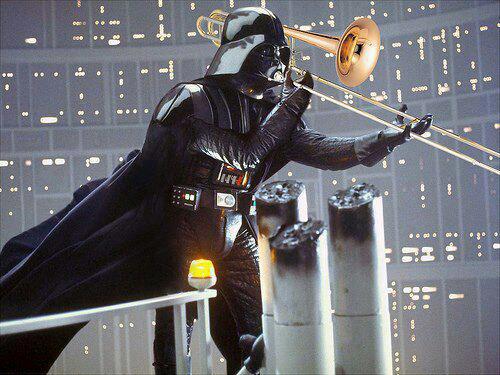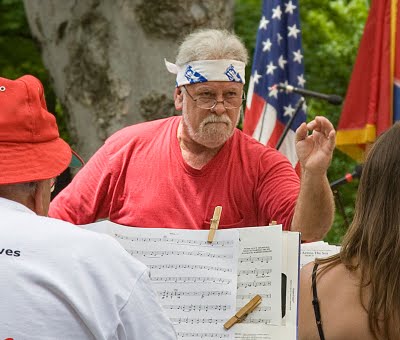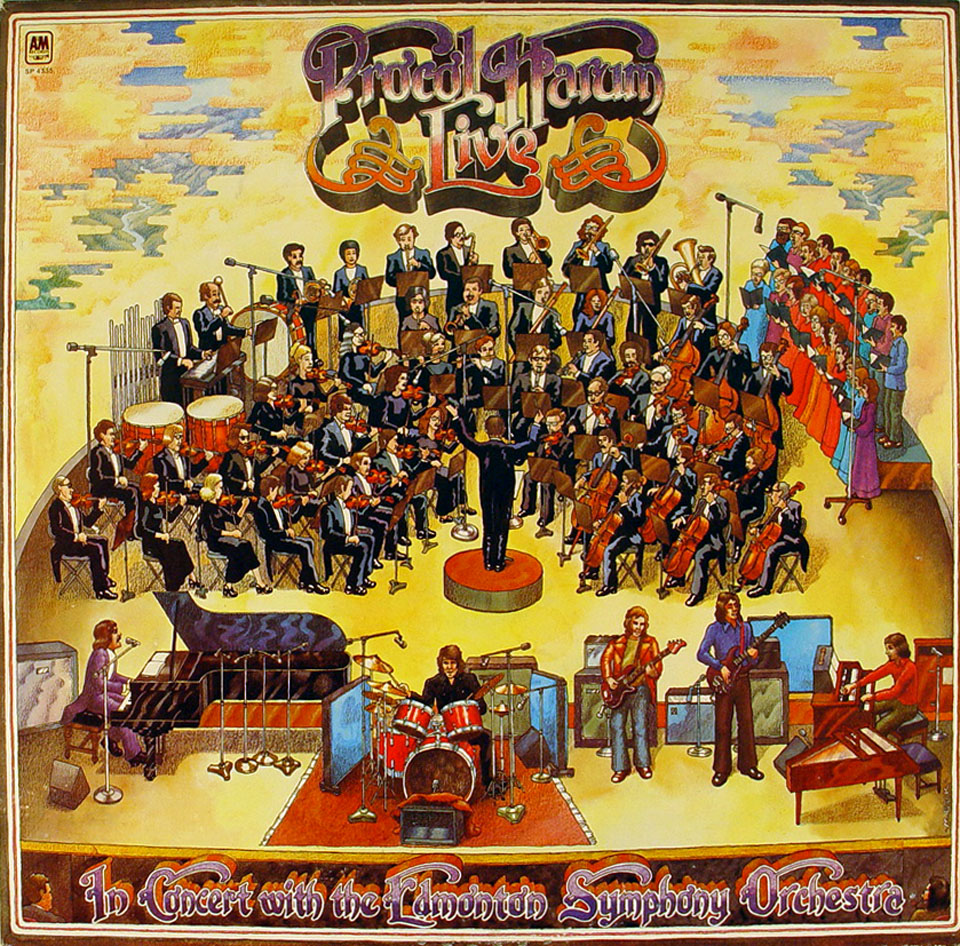Tracklist
01. Michael Hoenig – Main Theme
02. Michiko Naruke – Courage (Dungeon 2)
03. Setsuo Yamamoto – Armored Armadillo Remix
04. Michiko Naruke – Migrant Bird of the Wilderness
05. Yasunori Mitsuda – Guardia Millennial Fair
06. Tom Wallace – Disco Inferno
07. No Doubt – Imperial March
08. Nobuo Uematsu – Techno de Chocobo
09. Blackmore’s Night – Play Minstrel Play
10. Skatallica – Brown Eyed Girl
11. Koji Kondo – End Credits
12. Jay Dawson – Winds of Sonora
13. Procol Harum – Conquistador
14. Denis Leary – Asshole
15. Koji Kondo – Gerudo Valley
16. Michiko Naruke – Into the Wilderness
17. Charlie Daniels Band – The Devil Went Down to Georgia
18. Michiko Naruke – Migrant Bird of the Wilderness ~ Vocal Arrange
19. John Lennon – Imagine
01. Michael Hoenig – Main Theme (Baldur’s Gate, 1998)
I’ve spent my life behind the curve in many respects, and PC gaming is no exception. To this day, when I try to play even a modestly taxing game like Diablo III, my laptop will find some excuse to overheat, chug up, cry for more drivers, and further challenge my shaky pretense of computer literacy. This corruption of the Gaming Experience draws the veil away, and in my late twenties all I am left with is the cold realization that I am avoiding my life. Talk about ruining my immersion!
In my teen years, though, I didn’t have a life to hide from, and system disagreement was just a casual misadventure on any given weekend. I still preferred to avoid it, of course, so my mighty Compaq Presario with Intel Celeron (voted Best Processor for Malcontents five years straight) limited my gaming options on this brave new platform of PC Gaming. Fortunately, the speedy decay of the benchmark opens the AAA titles of yesteryear to the unclean, and so one day in 2000 (or perhaps at this point we were in 2001?) my brother brought home Baldur’s Gate. Built on the Forgotten Realms/Dungeons & Dragons system, it’s a true classic of roleplaying where men were men, your best ranger talked to a hamster, and nobody liked to cast more than a few spells a day.
Baldur’s Gate sports an appropriately classic sword and sorcery/high fantasy theme with a big choir, brass swells, and ominous strings. And this one’s in 5/4! Love me some odd time signatures. It clocks in light at 1:33 but withstands a good hour of repetition, which you’ll need as you furiously reroll your character’s stats for the optimal spread. At last, here’s a Track 1 worthy of its place.
02. Michiko Naruke – Courage (Dungeon) (Wild Arms, 1996)
Wild Arms is another one of those dips in the gulf of PlayStation JRPGs, but being quite a few marks above landfill like Beyond the Beyond, this dip lasted a little longer than the rest. Wild Arms is a happy marriage of JRPG traditions and American Western themes, many of which turn out to be common denominators: an outcast band of heroes, treasure hunting, the promise and uncertainty of an industrial revolution, giant Metal Demons…
“Courage” explodes into action in the first six seconds with synth bursts, the standard issue ominous strings, and a well placed bass motif. Then come the trumpets! The many soaring trumpets of the desert, blaring the Wild Arms anthem while the bass and drums gallop along. The song is subtitled “Dungeon”, which may evoke thoughts of caverns and castle basements, but I’ll be damned if you can’t send a pack of horses charging across the plains with this one. The countermelody is the standard issue synthy glocken-flute-whatever commonly used in the less ambitious PlayStation RPG soundtracks. Maybe it’s personal bias, or maybe it’s some Michiko magic, but I think it works fine here.
I must’ve had a hell of a time finding this specific song back in the day, though, because the Mr. Brick copy ends abruptly after 35 seconds. Dang. Hard times. In 2009 I grabbed the whole soundtrack off a torrent during a break between classes as an afterthought. Take that, past! Bring on the Metal Demons!
03. Setsuo Yamamoto – Armored Armadillo Remix (Mega Man X, 1993)
I’m not even going to waste your time with a Mega Man X summary. It’s my favorite game of all time, and its virtues are well extolled. Like most Mega Man games, the soundtrack is infectious, and despite my usual distaste for VGM remixes, I was pleasantly surprised with this one. I wish I knew who to thank, but proper credits for sixteen-year-old remixes get a little manky, and frankly I had enough trouble just finding this version on Youtube. I’m slotting in the main composer for MMX and calling it a day.
As for what to call the track? Tricky. The original Napster listing as well as the Youtube entry call it “jazz,” but I don’t buy it. Despite the skilled guitar that certainly feels freeform and inventive, it’s note for note the original melody with no actual improvisation until the last minute. The saxes are raunchy good, but they’re just playing the main vamp of the level. This brings it closer to swing or big band than jazz, but noooo, that ain’t it. The percussion is built on a hollow tubular thumping and beeping section that evokes the Blue Man Group, but the guitar and saxes are too prevalent to call this techno. The upbeat hi-hat hints at disco, but let’s be real, everybody loves the disco hi-hat.
I dunno, man, I’ve always sucked at genres. I don’t know what the hell you call this, but I call it good. I call it original, too, even if it’s not very adventurous of a remix. While I was searching Youtube for this track, I thumbed through several other remixes of this song, and they all opened with the original vamp at the original tempo, exactly like the original song does. If all you’re gonna do is feed the same song through your VST kit, you risk sterilizing a perfectly good song and leaving us stranded in the uncanny valley. Our mysterious arranger made his distinctive mark on the song by simply taking the tempo down around 10 clicks and giving it 16 measures to breathe in the rhythm and string progression before jumping into the main melody. This sets a deceptively relaxed precedent for a remix only slightly slower than the source material. Different enough to keep around, close enough to the original to appeal to fans of the original. A remix done right!
This is another happy rediscovery here. The odds are bad, but drop me a line if this is your remix and I’ll credit you accordingly. Onward!
04. Michiko Naruke – Migrant Bird of the Wilderness (Wild Arms)
I guess this makes Volume 4 the Wild Arms record. Okay!
One weekend night, a few years after burning this mix, I was in the living room, doing the usual Computer All Night thing. My brother was on the couch, watching The Good, the Bad, and the Ugly. I tuned it out for most of the night, but near the end I heard a familiar tune. A man was running around in a huge cemetery while the same four notes kept playing…
That’s right, Morricone fans, Naruke straight up steals “Ecstasy of Gold,” but she at least has the creative presence to expound on it with a brand new trumpet sequence and additional orchestral bridging it to Morricone’s original melody. A song well stolen and well embellished for its use in the overworld map of the game. I have to wonder if she ever got a letter from Morricone’s people, though.
05. Yasunori Mitsuda – Guardia Millennial Fair (Chrono Trigger, 1995)
It’s a brisk 3/4 that, despite its folk festival trappings, boasts a rich and thorough arrangement. Virtually every part (melodic and harmonic) is a fast hook, there are four distinct parts that take over a minute and a half before coming to a repeat, and it’s damn near the first thing you hear in this game.
But who cares about games? Get on this album, people.
06. Tom Wallace – Disco Inferno (???)
Only the stone cold pimps put the marching band recordings of popular music on their mixes. It’s me, I’m the stone cold pimps. I can’t find the demo version I originally got from Napster, though, so in a nod to a late friend, I have opted to let the Auburn band sub in.
I think we only played this one in my first year of high school band, which was undoubtedly my worst year in the program. I was unprepared for the agile tuba part prepared by Mr. Tom Wallace and spent more time baying about it than practicing. 8th grade was in general was a fairly shitty year for me. I began in a new school where everyone seemed to take everything far too seriously, I was introduced to multiple ranks of elder peers committed to my mockery, and by the end of the year I’d fallen out with my best friend. High school presented an array of brand new social and creative challenges, which I initially took to with the intelligence and gusto of an abused puppy. These do not fond memories make.
It got better, of course. I cannot even begin in good conscience to call the totality of my high school experience bad, but I can (and do) loudly contest those who dare to suggest I regard them as the best days of my life. May they burn, baby, burn in the past where they belong.
07. No Doubt – Imperial March (Live in the Tragic Kingdom, 1997)
Turns out this is not Reel Big Fish. Could’ve fooled many a Napster user, however, who passed this around as a Big Fish track, including myself. Indeed I remained fooled until searching Youtube for the track for use in this post. Whoops!
No Doubt was more my brother’s bag than mine. “Don’t Speak” was the only track from Tragic Kingdom that ever made it to my airwaves, and while I was quite taken with Ms. Stefani’s siren coo, I was not moved to explore the rest of the album. I might have been motivated had I known No Doubt was an actual ska band with horns that played Star Wars music. I was way more into that than girls at the time.
IT ALSO TURNS OUT, BY THE WAY, THAT “IMPERIAL MARCH” is from EMPIRE STRIKES BACK, not STAR WARS, and EVERYTHING I THOUGHT I KNEW ABOUT MYSELF IS COLLAPSING.

On that deflated note, we bid “Imperial March” a fond adieu after its certified hat trick in the Brick chronology. It might be the only song to be represented in some form on three different volumes. We shall see!
08. Nobuo Uematsu – Techno de Chocobo (Final Fantasy VI, 1994)
Nobuo Uematsu is shaping up to be the John Goodman of Mr. Brick’s Top Picks. For his fourth appearance, though, he makes only a brief cameo with another Chocobo twist from a game well represented in the Brick series.
Not that it’s bad. The one measure of disco bass is pretty fun, and you could chew on that countermelody all night!
09. Blackmore’s Night – Play Minstrel Play (Shadow of the Moon, 1997)
Though I begrudged the hours to which my brother was entitled on the family computer, he spent some of those hours in search of his own treasures on Napster, treasures which I occasionally deigned to peruse for my own collection.

“Play Minstrel Play” is such a treasure, presumably obtained for its guest performance from Jethro Tull’s Ian Anderson, but possibly also for Mr. Ritchie Blackmore, himself no small figure in rock ‘n roll canon. At some point, however, Blackmore tired of guitar godhood and absconded the throne to play medieval folk fantasy with his girlfriend Candice Night. And they say rock stars waste their wealth!
I say medieval, but in actuality the song itself is attributed to Pierre Attaingnant, a 16th century French music printer. I’m no expert on Rather Old Music, but I do believe Blackmore and Night preserve well the Renaissance spirit in their performance (the tambourine and chanting go a long way here). The form is straightforward: intro, verse, chorus, intro, verse, chorus, coda. Ian Anderson fulfills his role as the deceitful minstrel, playing at first faithfully with the intro and chorus, then melting down in the coda into a searing solo before rejoining Blackmore for a final unison run, ending in a wisp of smoke.
And let’s have a round of applause for the claps in the coda, please!
In time, please!
Oh, forget it.
10. Skatallica – Brown Eyed Girl (Skatallica, 1997)
I’ve spent my life in the dark. All these years, I thought this was Reel Big Fish (yes, again), as did many Napster users. Back then we just believed what we saw in the filename. (A couple years later, my friends and I would make this same mistake in search of Star Trek: First Contact, and that’s how I met your mother saw the first 30 seconds of Scooby Doo.)
Now it’s true that RBF did cover this song…in 2009. Not quite the Brick timeline, and somehow RBF’s actual take sounds even worse than this one. I’m actually let down, however, that the Brick track is not RBF. I was ready to shed some blood, get a double kill in against a criminally butchered song and a particularly annoying gang of butchers, but now…
…now, all I’m left with is Skatallica, and getting bloody with these guys just seems mean. Despite a positive Shazam ID and available downloads for purchase in 2016, there seems to be nothing on record about this band besides a self-titled album. Just another fly-by-night ska outfit with a shitty singer, doomed to be confused with Reel Big Fish among the pirates of Napster Bay. Not the last time we’ll be hearing this tragic story.
Speaking of tragedy, what a shame about “Brown Eyed Girl.” Van the Man, an artist in his own right, put down a sweet (if shallow) ditty about interracial dating, the rules of radio forced him to backpedal on the socially conscious element, and what hit the airwaves was a pop music Fat Man so toxic that the president still can’t bring himself to just apologize for it. This song is Weekend at Bernie’s parts 3 through 293, with no end in sight.
11. Koji Kondo – End Credits (The Legend of Zelda: Ocarina of Time, 1998)
Much like his contemporary Nobuo, Koji Kondo was well prepared to score the next generation of consoles and even had some practice on previous hits like Super Mario 64. But no amount of Mario tomfoolery could compare to the mighty Ocarina of Time, the long-awaited successor to the Zelda franchise. Compared to Final Fantasy VII, Kondo had a smaller game on a weaker platform to work with, yet he produced a score just as grand and memorable as FFVII’s.
He spared no expense in the “End Credits” sequence, mostly a majestic elaboration of “Zelda’s Lullaby” that segues into the “Lost Woods” dance before a somehow more majestic finish of the “Lullaby” with lots of clanging church bells.
In 2000/2001 it was already a nostalgic grab (like so many of the video game tracks), but even today it works for my purposes as well as it did back then: a hopeful song for a boy to dream to.
12. Jay Dawson – Winds of Sonora (1985?)
For historical context, I have personally provided the demo version of the song as it existed on Volume 4, introduction and all. Let’s hope the APC doesn’t send for my head.
For four (if not all five) years, “Winds of Sonora” was a staple in the football stands despite being an original band number and not a pop music cover. It really does make a great fit for a fledgling group; it’s got some interesting (yet not too difficult) parts all around, including solos for trumpet and trombone.
Our trombone section, well, there isn’t enough space on the internet to begin analyzing their actions, but I do recall by 10th or 11th grade, they gave up arguing over who got to play the solo and, in a display of unity, all played it every time.
I have always had a special affection for this song, and remember it the most fondly among the high school band tunes. I could probably play…most of it from memory today, even though I haven’t seen it in 11 years.
I expect no less from music written by the dedicated and prolific Mr. Jay Dawson, president of the Arrangers Publishing Company. The APC is a secret society of immortals that has worked in the shadows preparing original and arranged music for school bands since the 3rd century.

If you think “Winds of Sonora” is impressive, consider his special reserve.
13. Procol Harum – Conquistador (Live in Concert with the Edmonton Symphony Orchestra, 1972)
I don’t know if Procol were the first rock group to hitch up with a symphony orchestra in concert, but who gives a shit? Live in Concert with the Edmonton Symphony Orchestra caved in my ear face and probably your ear face too. Procol was always a band rooted in classical traditions (their immortal hit “Whiter Shade of Pale” was derived from Bach), so to assemble a classical extension for a special concert was a logical conclusion.
However logical, though, by all accounts the development of the concert was hurried and in constant peril. Gary Brooker wrote the score for “Conquistador” on the plane to Edmonton. Within a few hours of landing, he got into an argument with the conductor, who nearly walked off the project that night. At the end of the second day, “Conquistador” was the only song of five that had been rehearsed to playability. On the third day, the day of the concert, everything suddenly fell into place…about five hours before showtime. Gary Brooker got about nine hours of sleep between getting off the plane and beginning the show. And they were testing out a quadrophonic speaker system. Also, recording it all for an album. The show could’ve died for a hundred reasons, and yet…
Yet, for all their trouble, Live in Concert was a powerhouse record that ended up charting better than anything they ever did in the studio. “Conquistador” remains the banner of the record for good reason. The original studio version of the track is fine: thick and buzzy, but very calm, moderate in tempo and still a bit hollow. For the ESO, though, Gary changed it all up: faster tempo, new intro for the strings, a solo trumpet hook, a guitar solo break after the second verse (which Dave Ball, subbing in for the recently departed Robin Trower, absolutely slayed), breathing new life into the song. A real treat for the symphonic rock geeks, and indeed for anyone with ears and good sense.
But I gotta know, Gary: why in the flyin’ fuck did you leave out “Wreck of the Hesperus”?
Also, a shout out to Magic Box Records, formerly of New Orleans. I had only one opportunity to visit in the summer of 2005, less than two months before Hurricane Katrina drove it out for good. It was there I made my very first vinyl purchase: Procol Harum’s Live in Concert with the Edmonton Symphony Orchestra. A steal at $8, even though I didn’t own a turntable at the time. Just look at this cover:

14. Denis Leary – Asshole (No Cure for Cancer, 1992)
It’s a shame what the future does to you. I would’ve loved to go on loving Denis Leary. No Cure for Cancer was one of my first forays into the hazy, embittered world of stand-up comedy, and though some of Leary’s jokes were still going over my head at 13, I loved the ride. Leary says he’s “only kidding” that he “smoked a big fat bag of crack before the show,” but I don’t buy it. He’s a gibbering maniac on fire for the entire hour, and I still find it captivating despite his modern reputation and infamy for plagiarism.
No Cure is a comedy record led by a hit single, a too-true ballad of the American Dream, and yes, he stole it. Not the whole song, but the concept, it seems. It’s got sort of an Irish pub sway to it, and it’s not a bad melody. For a non-singer, Leary stays safely in his natural range, between sorta-spoken-word and, uh, strained crooning. Having backup singer/guitarist Chris Phillips (whose resume is…quite the mixed bag) goes a long way to pave over Leary’s gaps and make it feel like a real song. I especially like that the CD version leaves in the “wipe my mouth with the American flag” line.
Leary’s crimes karmically come out in the wash, because while Bill Hicks is dead, he’s remembered with dignity, a word you don’t hear so often in stand-up. Provided Louis C.K. doesn’t totally blow it over the next few decades, he’ll enjoy a similar legacy. Denis Leary will be remembered at best as a gibbering maniac on fire, and at worst he’s the joke thief who’s just an asshole.
15. Koji Kondo – Gerudo Valley (The Legend of Zelda: Ocarina of Time)
I’m amazed I found this actual version on Youtube, not because it’s rare, but because there’s about fifty dillion live covers of it. Mario may be the icon, but Koji’s Legend of Zelda works are by far his most revered. That said, I can’t seem to identify the particular ensemble or arranger behind this work, so Koji it is.
Anyway, this particular version’s not so hot. The string players (don’t ask me if this is a quartet or what, I’m a brass kid) are adroit, no question, and the arrangement is fine…though it’s a bit slow. A Youtube commenter suggests kicking the speed up to 1.25x, and though I can’t believe I’m going to say it, the guy on Youtube is right.
Tempo’s one thing; losing the wood-block/castanet is just too much for me. I can trade the guitar and trumpet out for strings, but without that clacky beat, the Antonio Banderas Factor is eliminated and I simply cannot bear it.
16. Michiko Naruke – Into the Wilderness (Wild Arms)
I seem to have a real affection for RPG opening music, and I can see why. RPGs are typically big stories, and big stories need big themes to open them. They were a crucial step in elevating the theatrical presentation of the games (before games turned into button-propelled movies themselves).
I have always been a sucker for big themes provided they have some depth, and in this case Wild Arms provides. The Western influence is worn proudly in the guitar, the trumpets, and of course, the whistling. The orchestra, which I believe is mostly synthesized, is seamlessly mixed with the real parts. The bridge employs a lot of sudden outbursts from various winds, and for the life of me I just can’t tell the real from the fake. Did Naruke just jump a dirtbike over the uncanny valley? Marvelous song, still love it; be sure to check out its ending companion if you do too.
17. Charlie Daniels Band – The Devil Went Down to Georgia (Million Mile Reflections, 1979)
Let’s have a hoot and a holler for the first country music entry in the Top Picks! BUUUUUUUUUUUUUUURRRRRP

Just ‘cause I use words like adroit don’t mean I can’t enjoy me a good hoot and/or holler. I’m not from Georgia, but I am from the South, granting me license to enjoy songs like these just a bit more than my Yankee brethren. And say what you will about full bore hillbillies like Mr. Daniels, but when they’re on top of their game, look the fuck out. If the Devil had heeded such advice when he crossed Johnny, well, he’d be up one golden fiddle.
Let the record show, by the way, that radio operators who play the “son of a gun” edit deserve to be run out of town, old style.
18. Michiko Naruke – Migrant Bird of the Wilderness ~ Vocal Arrange
Look, it’s just us. You can be straight with me, I’m a pretty understanding guy.
You haven’t been watching these videos.
Aw, can it. Come on. Don’t embarrass yourself. It’s fine. But listen…
Watch this one. It’s short. I’ll wait.
So it would seem some inspired young man took this tune, the very same Track 2 of Volume 4 and blessed it with his voice. He put it on Napster, making no suggestion of change from the original song and went to bed. Or maybe he made it for his own sake, perhaps for a personal collection of vocal additions to game music. Maybe it was uploaded by a rival, or maybe it was simply saved by accident to a Napster-shared directory.
However it came to us, my brother and I loved it, and I couldn’t bear to burn “Migrant Bird” to Volume 4 without its vocal cousin. For all I know, we’re the only ones who even remember it; I cannot find a scrap of evidence on today’s internet that this track ever existed. Not a Youtube video, forum post, nothing. I’ve had to go to the trouble to upload it myself. So here you go, people. My gift to you.
Final note: I’m offering a 20.00 USD bounty to the person(s) who can correctly source the artist(s) behind this invaluable take. Not even kidding. Call Watson and get on the case. I want to thank this man for his work.
19. John Lennon – Imagine (Imagine, 1971)
My favorite Beatles, in order: George, Paul, Ringo, John. You’ll forgive me if I have nothing to offer here. Nothing against John, mind you. I did manage to close a Brick mix with him, a decision I support even today.
Actually, one thing: Mr. David Byrne once said “The better a singer’s voice, the harder it is to believe what they’re singing.” John begrudged that his anti-establishment statement flew over everybody’s head because it was a beautiful piano/strings ballad and that’s all they wanted to hear.
Volume 4 is still pretty heavy on the video game music, though the picks are scattershot enough to create the illusion of diversity. I’m also satisfied with the non-video game selections: the band music will run out fast, and now we’re getting some seriously stellar picks like “Conquistador.”
I did manage to confuse two tracks with Reel Big Fish, but rest assured their time will come.
I also brought in a couple of new genres, so that’s a feather in my cap and no mistake. I think we can begin to look forward to better lists going forward. Either that or greater disappointments. Cheers, nerds!